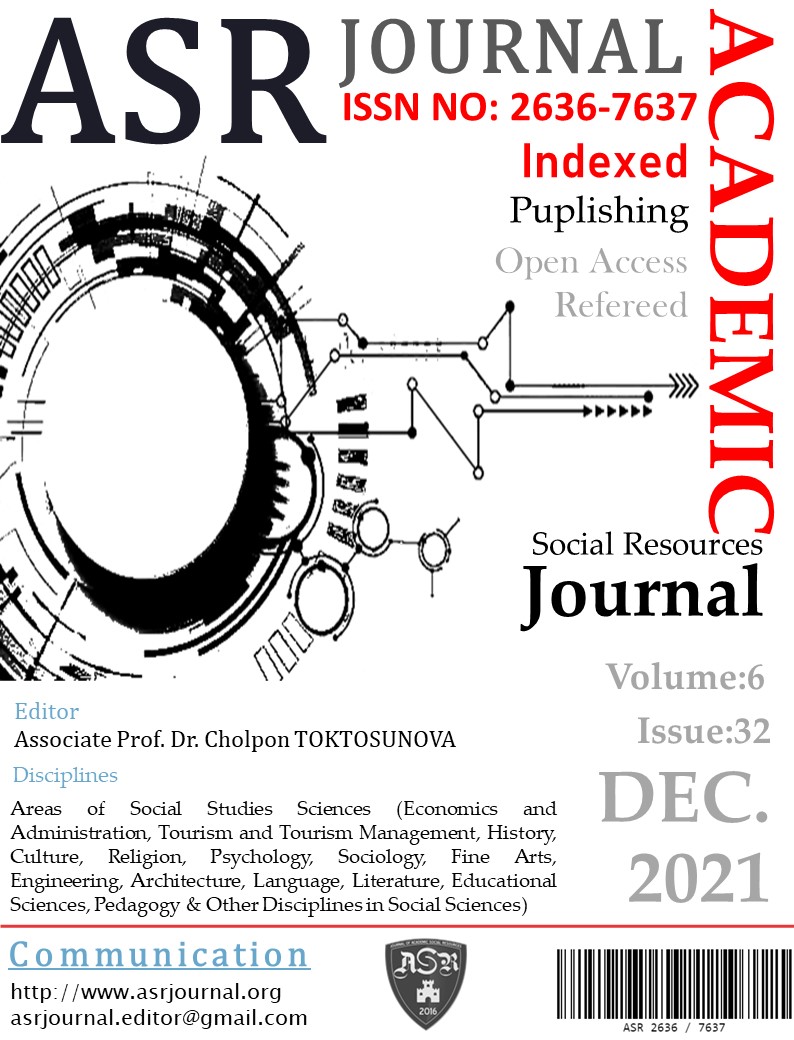Author :
Abstract
Aristoteles Kategoriler isimli eserinde ve Metafizik’in bazı bölümlerinde, tümellerin duyulur nesnelerin özleri olduklarını, bu yönüyle ikinci töz olduklarını öne sürmektedir. Aristoteles’in bu hususta, tümelin duyulur nesneden ayrı ve aşkın olarak bir gerçekliğe sahip olması bakımından biricik töz olduğunu savunan Platon’dan ayrıldığı görülmektedir. İslâm felsefesinin önemli filozoflarından Fârâbî, bazı eserlerinde metafiziğin konusu olan Tanrı/İlk Neden ve ayrık akılları, bilfiil makuller olarak ele almaktadır. Kategoriler Kitabı ve Harfler Kitabı isimli eserlerinde ise, Aristoteles’in kategorilerine metafizik bir temel sağlamak üzere, makuller olarak tümelleri töz olarak değerlendirmektedir. Ayrıca Fârâbî, duyulur nesnelerden elde edilmiş birinci makuller ile zihnin kendisinin oluşturduğu ikinci makulleri ayırt etmektedir. Mevcut çalışmada tümel ve töz ilişkisi hususunda öncelikle Aristoteles’in görüşü ele alınacak ve sonra Aristoteles ile mukayese yoluyla Fârâbî’nin bu husustaki pozisyonu değerlendirilecektir.
Keywords
Abstract
Aristotle, in his work titled Categories and in some parts of Metaphysics, argues that the universals are the essence of sensible objects, and in this respect, they are substances in a secondary sense. In this regard, Aristotle seems to differ from Plato, who argues that the universal is the only substance in that it has a reality separate from the sensible object and transcendent. Fârâbî, one of the important philosophers of Islamic philosophy, considers God/First Cause and seperate intellects, which are the subject of metaphysics, as an intelligibles in act in some of his works. As for in his works titled The Book of Categories and The Book of Letters, he considers universals as substances, as intelligibles, to provide a metaphysical basis for Aristotle’s categories. In addition, al-Fârâbî distinguishes the first intelligibles obtained from sensory objects and the second intelligibles formed by the mind itself. In the present study, Aristotle’s view on the relation of universal and substance will be discussed and then the position of Fârâbî on this issue will be evaluated by comparison with Aristotle.
Keywords
- Aristoteles (2004). Kategoriler. Çeviren Saffet Babür. İstanbul: İmge Kitapevi.
- Aristoteles (2004). Kategoriler. Çeviren Saffet Babür. İstanbul: İmge Kitapevi.
- Aristoteles (1996). Metafizik. Çeviren Ahmet Arslan. İstanbul: Sosyal Yayınları.Aristoteles (1997). Fizik. Çeviren Saffet Babür. İstanbul: Yapı Kredi Yayınları.
- Aristoteles (2011). Ruh Üzerine. Çeviren Zeki Özcan. Ankara: Birleşik Yayınevi.
- Arslan, A. (2014). İlkçağ Felsefe Tarihi- Aristoteles. 4. Basım. İstanbul: Bilgi Üniversitesi Yayınları.Arslan, A. (2013). “Bir İslâm Felsefesi Var mıdır?” İslâm Felsefesi Üzerine. İstanbul: Bilgi Üniversitesi Yayınları, s.1-30.
- Çotuksöken, B. (1993). Ortaçağ Yazıları. İstanbul: Kabalcı Yayınevi.
- Fârâbî (2008). Harfler Kitabı. Çeviren Ömer Türker. İstanbul: Litera Yayıncılık.
- Fârâbî (2019). Kategoriler ve Retorik. Neşir ve Tercüme Ali Tekin. İstanbul: Klasik Yayınları.
- Fârâbî (2003). Eflâtun ile Aristoteles’in Görüşlerinin Uzlaştırılması. İslâm Filozoflarından Felsefe Metinleri içinde. Çeviren Mahmut Kaya. İstanbul: Klasik Yayınları, s.151-180.
- Fârâbî (2018). El-Medînetü’l-Fâzıla. Çeviren Yaşar Aydınlı. İstanbul: Litera Yayıncılık.
- Fârâbî (2017). Es-Siyâsetü’l-Medeniyye veya Mebâdi’ül-Mevcudât. Çevirenler Mehmet S. Aydın, Abdulkadir Şener, M. Rahmi Ayas. İstanbul: Büyüyenay Yayınları.
- Fârâbî (1999). Mutluluğun Kazanılması. Çeviren Ahmet Arslan. Ankara: Vadi Yayınları. Fârâbî (1999). İlimler Sayımı. Çeviren Ahmet Arslan. Ankara: Vadi Yayınları.
- Gilson, E. (2007). Ortaçağda Felsefe. Çeviren Ayşe Meral. İstanbul: Kabalcı Yayınevi.
- Guthrie, W.K.C. (1999). İlkçağ Felsefesi Tarihi. Çeviren Ahmet Cevizci. Ankara: Gündoğan Yayınları.
- Kuşlu, H. (2019). “Ebû Bişr Mettâ’dan İbn Sînâ’ya Mantığın Konusu: Söz ve Lafızlar mı Yoksa İkinci Makul Anlamlar mı?” İslâm Araştırmaları Dergisi. Sayı 42: 1-28.
- Lear, J. (1988). The Desire to Understand. Cambridge: Cambridge University Press.Porphyrus (1986). Isagoge. Çeviren Betül Çotuksöken. İstanbul: Remzi Kitabevi.
- Ross, W.D. (1993). Aristoteles. Çevirenler A. Arslan, İhsan Oktay Anar, Ö. Kavasoplu, Z. Kurtoğlu. Yayına Hazırlayan Ahmet Arslan. İzmir: Ege Üniversitesi Yayınları.
- Schroeder, F. M.&Todd, R. B. (1990). Two Greek Aristotelian Commentators on the Intellect. Trans.by Frederic M. Schroeder, Robert B. Todd. Toronto: Pontificial Institute of Mediaeval Studies.
- Türker, Ö. (2013). “Metafizik: Varlık ve Tanrı”. İslâm Felsefesi -Tarih ve Problemler- içinde. Editör M. Cüneyt Kaya. İstanbul: İsam Yayınları, s.603-654.
- Zeller, E. (2008). Grek Felsefesi Tarihi. Çeviren Ahmet Aydoğan. İstanbul: Say Yayınları.





